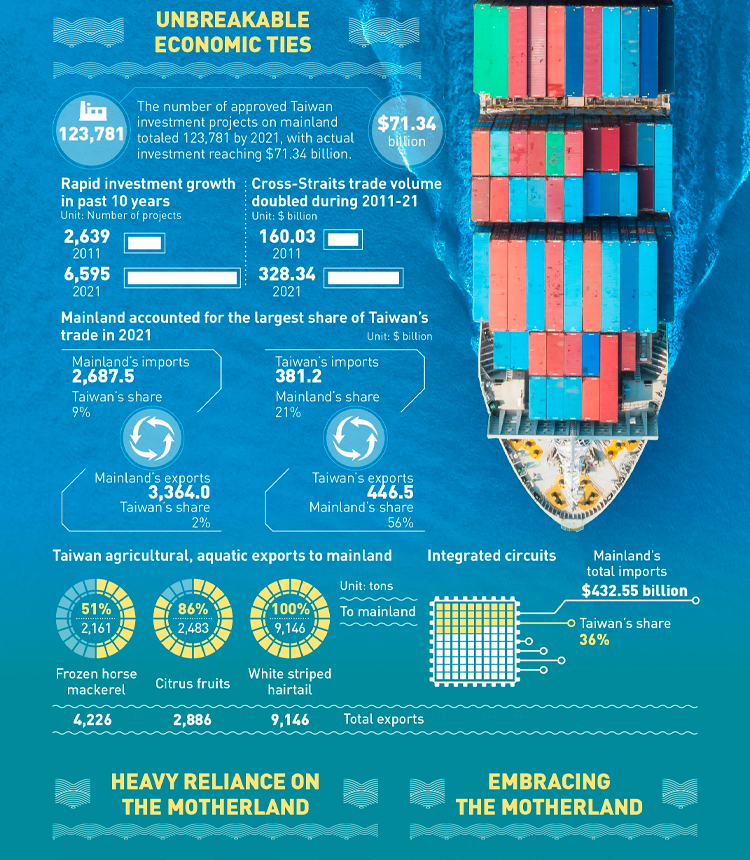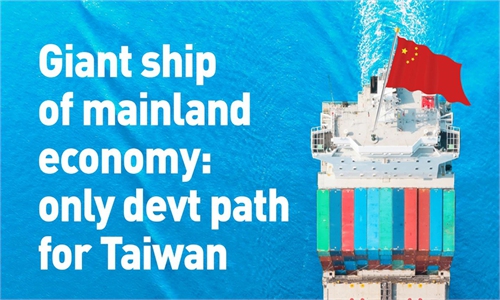China decries US 'trade talks' with Taiwan region, issues stern warnings
Officials issue stern warnings to Washington, DPP

Taiwan Photo: Unsplash
Chinese central authorities on Thursday voiced strong opposition to the start of negotiations on a so-called trade initiative between the US and the island of Taiwan, vowing to take all necessary measures to safeguard China's sovereignty and territorial integrity, while warning the Democratic Progressive Party (DPP) authorities against colluding with external forces under the guise of trade cooperation.
Chinese trade analysts noted that the latest move by the US and the DPP authorities is another blatant challenge to the one-China principle and a serious provocation against China's sovereignty and territorial integrity, as the so-called initiative, while has no meaningful economic and trade prospects, carries sovereign connotations and is of an official nature.
"We have taken note of the US announcement to commence negotiations on the so-called 'US-Taiwan Initiative on 21st Century Trade' and [the US] posting of the so-called negotiating mandate, to which the Chinese side firmly opposes," Shu Jueting, a spokesperson for the Ministry of Commerce (MOFCOM), told a regular press conference on Thursday.
The one-China principle is the premise for China's Taiwan region to participate in external economic cooperation, and China has always opposed all kinds of official exchanges between any countries and China's Taiwan region, including talks and the signing of any official agreements or deals with sovereign connotations and of an official nature, Shu said.
The Taiwan question is the most consequential, sensitive and essential question for China-US relations, the MOFCOM spokesperson said, urging the US to abide by the one-China principle, honor the three China-US joint communiqués, and fulfill promises made by the US leadership to not support "Taiwan independence."
The US ought to handle its economic and trade relations with the island of Taiwan in a prudent manner and fully respect China's core interests, Shu continued, pledging to take all necessary measures to resolutely safeguard China's sovereignty, security and development interests.
Commenting on the US' announcement on Thursday, Ma Xiaoguang, a spokesperson for the Taiwan Affairs Office of the State Council, also slammed the US' move and issued a stern warning to the DPP authorities on the island against colluding with external forces to betray the interests of the people on the island and seek political self-interests. "Such vicious behaviors will definitely be punished," Ma said.
In separate remarks, Foreign Ministry spokesperson Wang Wenbin on Thursday also called on the US to stop any official exchanges with the island of Taiwan and to not send any wrong signals to "Taiwan independence" separatist forces on economic and trade grounds.
Vowing the adoption of resolute measures to safeguard China's sovereignty and territorial integrity, Wang warned the US against miscalculations.
In a statement on its website on Wednesday, the Office of the US Trade Representative announced that a consensus had been reached on the negotiating mandate for the "US-Taiwan Initiative on 21st-Century Trade." The statement added that "it is expected that the first round of negotiations will take place early this fall."
The 11 trade areas to be addressed in the so-called negotiating mandate such as trade facilitation, good regulatory practices, small and medium-sized enterprises and agriculture mostly revolve around facilitating trade between the two sides, which tend to result in changes in the business environment, Tang Yonghong, deputy director of the Taiwan Research Center at Xiamen University, told the Global Times on Thursday.
"These areas hardly touch on trade liberalization, which would genuinely generate more investment and trade opportunities," Tang said, arguing against any substantial economic and trade benefits resulting from the initiative.
Lambasting talks on the trade initiative as yet another futile attempt by DPP authorities in Taiwan to expand its so-called international space, the expert accused the negotiations of being advanced in a quasi-official manner.
Were the US to give ground on tariffs in the trade initiative, congressional approval would be a prerequisite; if that's the case, the US would be "crossing China's red line," which is by no means acceptable, Gao Lingyun, an expert at the Chinese Academy of Social Sciences in Beijing, told the Global Times on Thursday.
The separatist DPP authorities' attempt to reduce the island's reliance on the Chinese mainland for economic development essentially goes against economic principles, and anyone riding roughshod over the factual basis would only end up taking a battering from their unruly wrongdoings, Gao remarked.
In a fresh sign of close trade ties between the mainland and the island, the mainland's imports and exports with the island of Taiwan grew by 7.5 percent year-on-year in the first seven months of 2022 to $192.13 billion, customs data showed.

Giant ship of mainland economy: Taiwan's only development path forward Infographic: GT
Trade between the Chinese mainland and the island of Taiwan doubled to $328.34 billion in 2021 from $160.03 billion in 2011.
Imports and exports with the island accounted for 4.4 percent of the mainland's trade in 2011 and the reading rose to 5.4 percent in 2021. In the case of the island of Taiwan, trade with the mainland made up 28.6 percent of its total trade in 2011, which climbed to 33 percent last year.
The mainland has held its position as the Taiwan region's largest export destination and the biggest source of the island's trade surplus.

